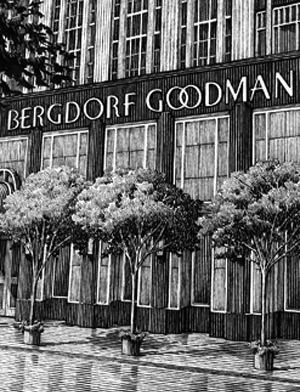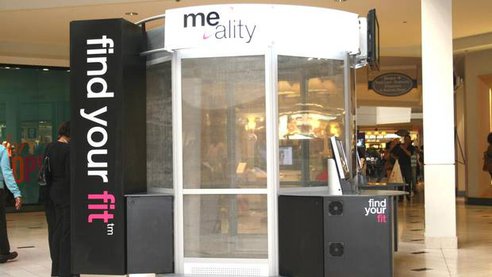While we might take it for granted now, shopping for affordable, well-fitting and stylish clothes wasn’t always so easy. Today, all we have to do is run to the nearest boutique or department store, and (depending on your shopping habits) can walk out in very little time with any number and variety of clothes, shoes and accessories. If making the trek to a store seems too overwhelming, all it takes is a few clicks on your favorite ecommerce site and, bam, your shopping spree is complete.
 Prior to the simplicity and ease of ready-made goods, every single garment an individual required would need to be custom sewn. Currently in retail, custom or “bespoke” clothing is generally reserved for designer and couture wears. But before Bergdorf Goodman first introduced ready-to-wear clothes in it’s NYC flagship store, “bespoke” was a necessity. Ready-to-wear is “clothing that is mass produced in standardized sizes and sold at retail stores in a finished condition (…_) and are intended to be worn without needing any significant alterations by the end-user.”
Prior to the simplicity and ease of ready-made goods, every single garment an individual required would need to be custom sewn. Currently in retail, custom or “bespoke” clothing is generally reserved for designer and couture wears. But before Bergdorf Goodman first introduced ready-to-wear clothes in it’s NYC flagship store, “bespoke” was a necessity. Ready-to-wear is “clothing that is mass produced in standardized sizes and sold at retail stores in a finished condition (…_) and are intended to be worn without needing any significant alterations by the end-user.”
http://retailindustry.about.com/od/glossary/g/readytowearclot.htm
After its debut at Bergdorf, ready-to-wear became wildly popular, spreading like wildfire in the retail industry. Custom clothing shifted away from the norm, to a much higher-end market. However, recent innovations in both brick and mortar and ecommerce retail suggests that we might soon see a shift to back to custom-made clothing.
Currently used in over 70 malls across the US, the Intellifit Virtual Fitting Room is a “high-accuracy scanner utilizing low emitting radio waves to capture 200,000 points of data on a fully clothes individual in less than 20 seconds.” The device also comes with a high-volume transaction server to store every customer’s shopping profile and body measurement information. While this inventive and intriguing device is currently being used to draw people into the mall, it could very well be a device that eventually encourages more shoppers to buy online, using the measurements they received from Intellifit.

On the ecommerce front, a huge number of new companies are offering simple step-by-step self measurement guides that allow their customers to input and store their exact sizing info to order bespoke, yet affordable, clothing. Indo Chino is a great example of this. They promise that in 10 minutes (and with the help of a friend), you can measure yourself and input every necessary measurement into their digital database. With free global shipping, extremely competitive prices, and quick turn around time, it’s quite hard to make a case against using their system, or any of their competitors’ that offer similar services.
http://www.indochino.com/How-It-Works
The Intellifit Virtual Fitting Room and Indo Chino are just two examples of innovations that might provide access to great fitting, custom clothing to those of us not in the 1%. If advances such as these continue to pop up in the retail space, I think we could see a rapid shift to affordable, accessible and well-fitting bespoke clothing becoming the “new normal.”